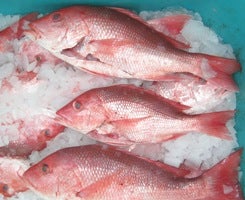If you read Food and Water Watch’s recently published report on the Gulf of Mexico Red Snapper fishery, you may be wondering why EDF is so supportive of catch shares as a tool for fishery managers. The report paints a pretty bleak picture for fishermen in the Gulf of Mexico. We could spend an entire blog post devoted to addressing the report’s flawed statistics and manufactured conclusions, or we can just tell you the story of the red snapper fishery and how it went from near closure to a rebuilding fishery on the path of recovery.
Anyone who grew up in a coastal community and who has seen the fishing industry struggle under the weight of restrictions and regulations understands the devastating impacts of size limits, trip limits, and short seasons. Traditional management has been crushing both large and smaller scale fishermen to the point where their livelihoods – their ability to provide for their families – has been threatened. Catch shares offer them a way out, and a choice.
When catch shares were being debated in the Gulf Council in 2006, fishermen came to the table to design them. All fishermen who wanted to participate, could participate – the Council process provided plenty of access through Council meetings, Advisory Panels, public comment periods, and hearings. Under the Magnuson-Stevens Act, which Congress passed as the fisheries law-of-the land, fishermen were guaranteed a referendum (red snapper got two!) to vote a catch share up or down. That means the fishermen who historically made a living from fishing got the chance to decide how best to manage their fishery themselves. Read More











